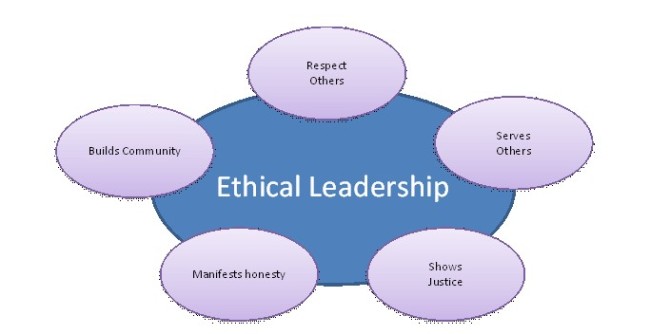Ethical leadership
The discussion of ethics in corporations and institution is an interesting one, and raises important questions. Is the purpose of a corporation meant to serve its shareholders or are they meant to take into account the wider stakeholders affected by their business decisions, Johnson et al (2008).
As the world continues to be rocked by scandals and corruption among high level management in global corporations, Oates & Dalmau (2013). Organisations need strong leaders who are prepared to make ethical business decisions and solutions to the challenges and complexities of the global economy.
Furthermore we as society need to decide the type of leaders we want to lead and manage our businesses and institutions. In today’s world the scope of leaders and the impact of their decisions can span across generations Oates & Dalmau (2013). With the world getting increasingly connected a poor and unethical decision can have serious consequences on the lives of people in different parts of the world, Oates & Dalmau (2013). Global communication systems and real time data now gives consumers access to real-time information about corporations operations and activities no matter how unflattering it is. According to Mullins (2013) consumers now expect corporations to go beyond their traditional responsibility of paying taxes and obeying the law, they expect them to make meaningful and life changing contributions to society.
Shareholder View
An essential principle of ethical leadership is about making strategic decisions for the long term benefits of stakeholders and balancing the aspirations and goals of the organisation in a manner that achieves positive result for all those affected, Oates & Dalmau (2013).
Economic Value – Mitchell (2001) found a positive association between ethical leaders and financial performance, with ethical companies outperforming other companies who did not adopt ethical leadership. Mitchell (2001) further asserts corporations with strong ethical leaders had increased revenue, stock price and employment than other corporations.
With ethical consumerism growing at a fast pace, consumers now expect and demand corporations to act ethically, Mullins (2013). Corporation are expected to go beyond the traditional call of duty and demonstrate due care and concern for their stakeholders, Mullins (2013). Ethical leaders who adopt ethical and stakeholder approach to their business decisions and operations are likely to have a competitive edge over their rivals. This can be used as a competitive advantage and differentiator especially during economic downturns as savvy consumers are more likely to buy goods & services from ethical corporations.
Increased performance – According to Bello (2012) ethical leadership has a positive correlation with increased job satisfaction and employee performance. Leaders with strong ethical commitment motivate followers to put in extra effort in completing tasks. More employee autonomy is also usually prevalent in ethical leadership approach, which usually breeds confidence and innovation as employees are able to provide outside the box solutions to problems, Bello (2012). Ethical leaders who treat their followers with respect and value may create a feeling of self-worth, confidence and reverence in the workplace.
These factors could potentially increase performance levels and motivate employees to pull together to achieve the goals and objectives of the organisation. Increased performance levels and motivation will give ethical leaders a competitive edge in the global marketplace.
Attract best talent – Strong ethical leaders with a high trust culture can help retain and attract the best talent in the market. People identity with ethical companies and the leadership style of organisations, talented employees may be willing to work in an organisation with a visionary leader who adopts an ethical approach to management. An inspired, motivated and talent group of employees who buy into the vision and core values of the organisation will provide a competitive edge to the organisation, Bello (2012).
Stakeholder View
Ethical issues can pose difficult questions for leaders as they try to balance the demand of shareholders vs stakeholders. It can argued that the primary responsibility of an organisation is not to indulge in social interventions but to maximise shareholder return and make as much money for their shareholders, Mullins (2013).
Economic implication – Constant social initiates and philanthropy may be argued as poor utilisation of the organisations allocative efficiency. Corporations are responsible for maximising shareholder wealth in profitable ways and spending time worrying about which cause or charity to support may take management’s eye of the ball of increasing profit, Catulli (2006). Supporting charities financially with shareholder fund could result in lower dividends for shareholders, higher prices or lower wages for employees, Catulli (2006).
Enron
The Enron scandal, revealed in October 2001, eventually led to the bankruptcy of the Enron Corporation, and the dissolution of Arthur Andersen, which was one of the five largest audit and accountancy partnerships in the world, Healy & Palepu (2003). In addition to being the largest bankruptcy reorganization in American history at that time, Enron was attributed as the biggest audit failure. With many executives sent to prison for their part in one of the biggest auditing scandals of modern times. This clearly demonstrates the impact poor and unethical business decisions can have on stakeholders and society in general.
Conclusion
An organisation goes beyond generating wealth for shareholders but is an integral part of a broad social fabric with the responsibility of making positive and sustainable contribution to society. Ethical leaders have a role to play in order to realise this factor as change starts at the top and can inspire stakeholders to pull together to achieve core values and set positive examples for others to follow.
Reference
Bello, S. (2012) Impact of Ethical Leadership on Employee Job Performance, International Journal of Business and Social Science Vol. 3 No. 11; June 2012
Mitchell, J (2001) The ethical advantage – Why ethical leadership is good business [online] http://www.cebcglobal.org/uploaded_files/The_Ethical_Advantage.pdf
Oates, V. & Dalmau, T (2013) Ethical Leadership: a legacy for a stronger future, performance Volume 5, Issue 2, May 2013
Catulli, M. (2009) CSR and Sustainable Marketing, Pearson Limited, Second Edition
Johnson, G., Scholes, K. & Whittington (2008) Exploring Corporate Strategy Text & Cases Prentice Hall Seventh Edition
Healy, P. & Palepu, K. (2003). “The Fall of Enron” Journal of Economic Perspectives Volume 17, Number 2—Spring 2003—Pages 3–26


Good work…I like example given by you…
Thank you kunal , Enron corporation is a very good example that demonstrate unethical business
good job TOSHIN !! however do you think ethical leadership will always lead for positive results in organisation ?
Yes vidhya, Ethical leadership gives positive result in organisation.